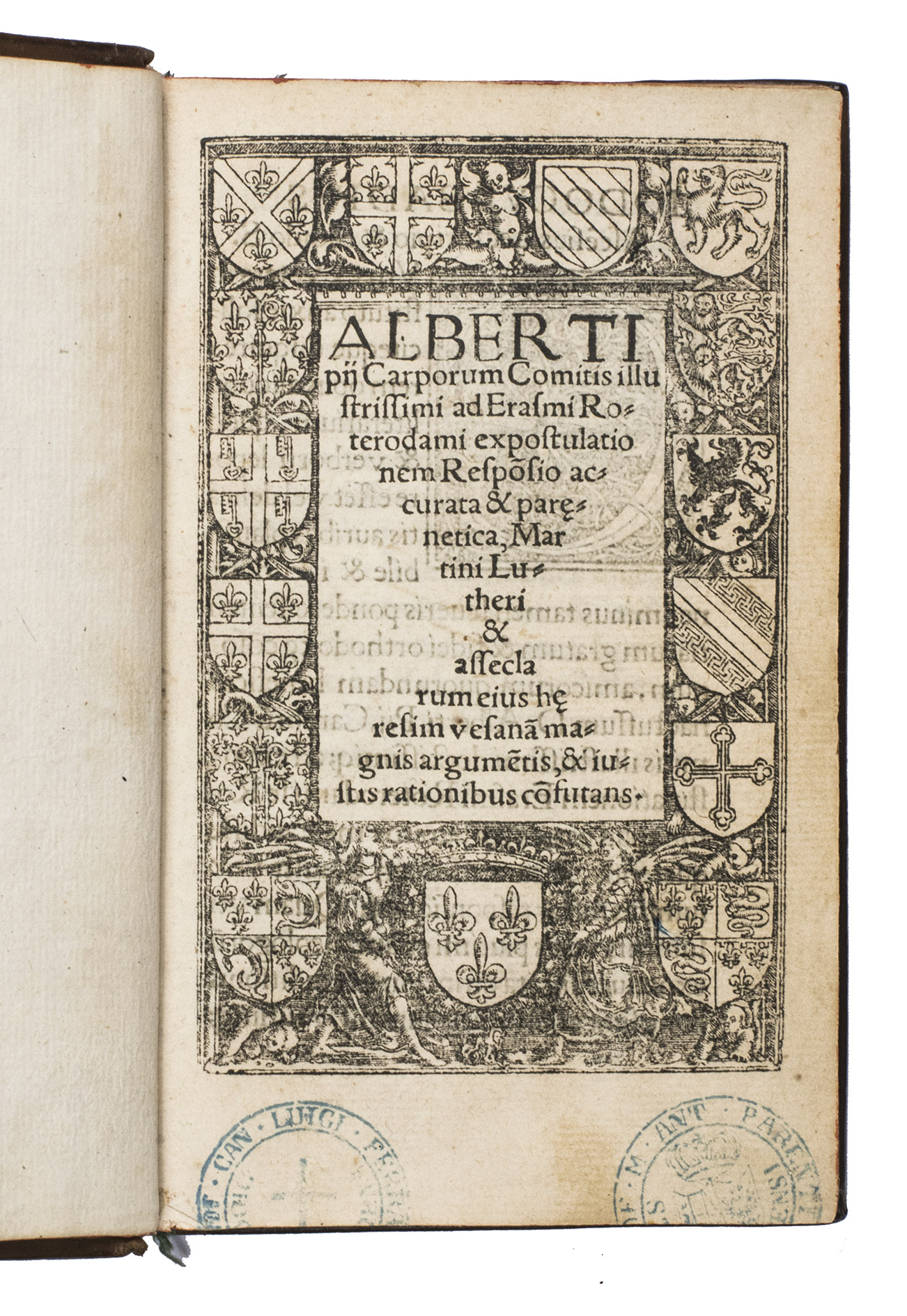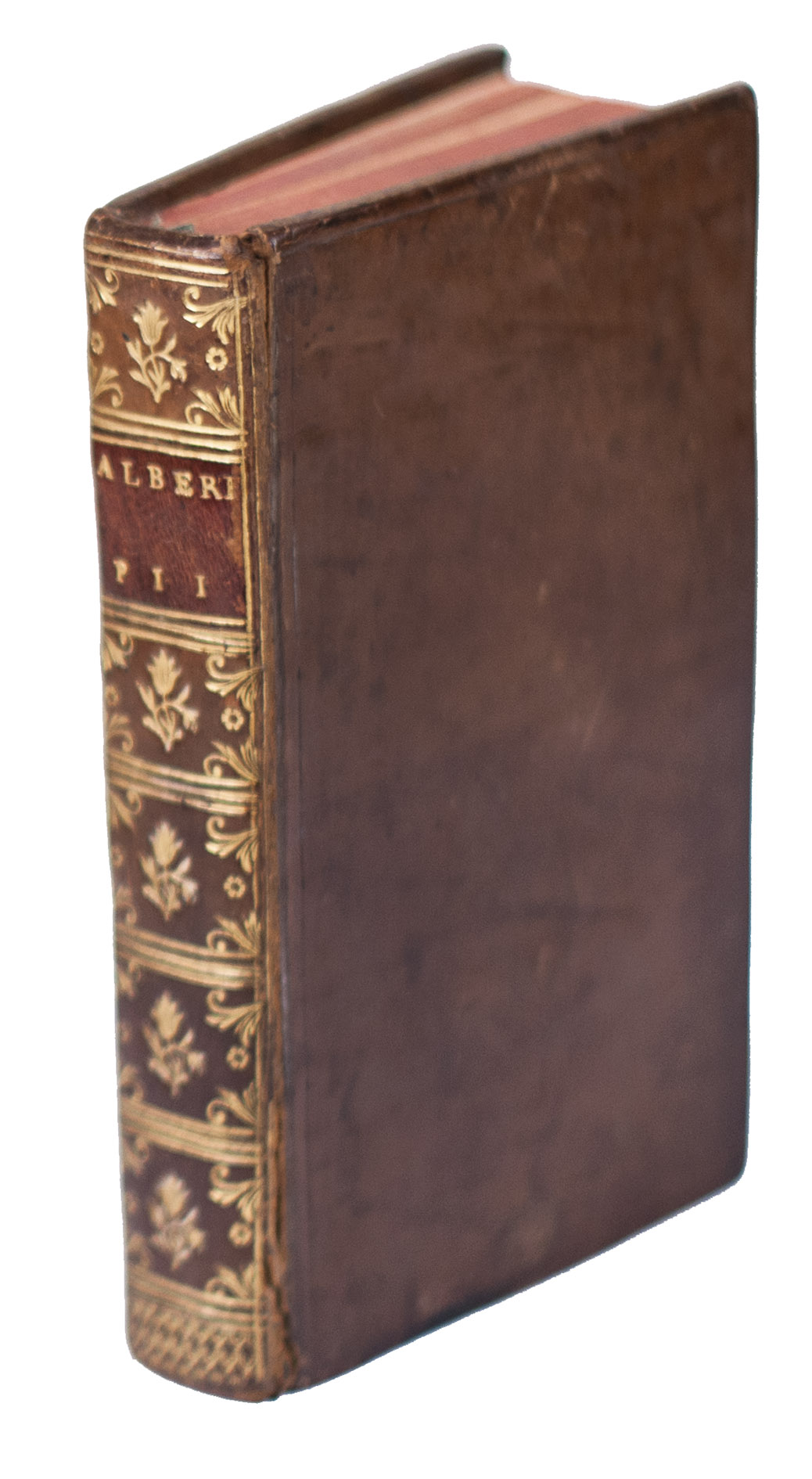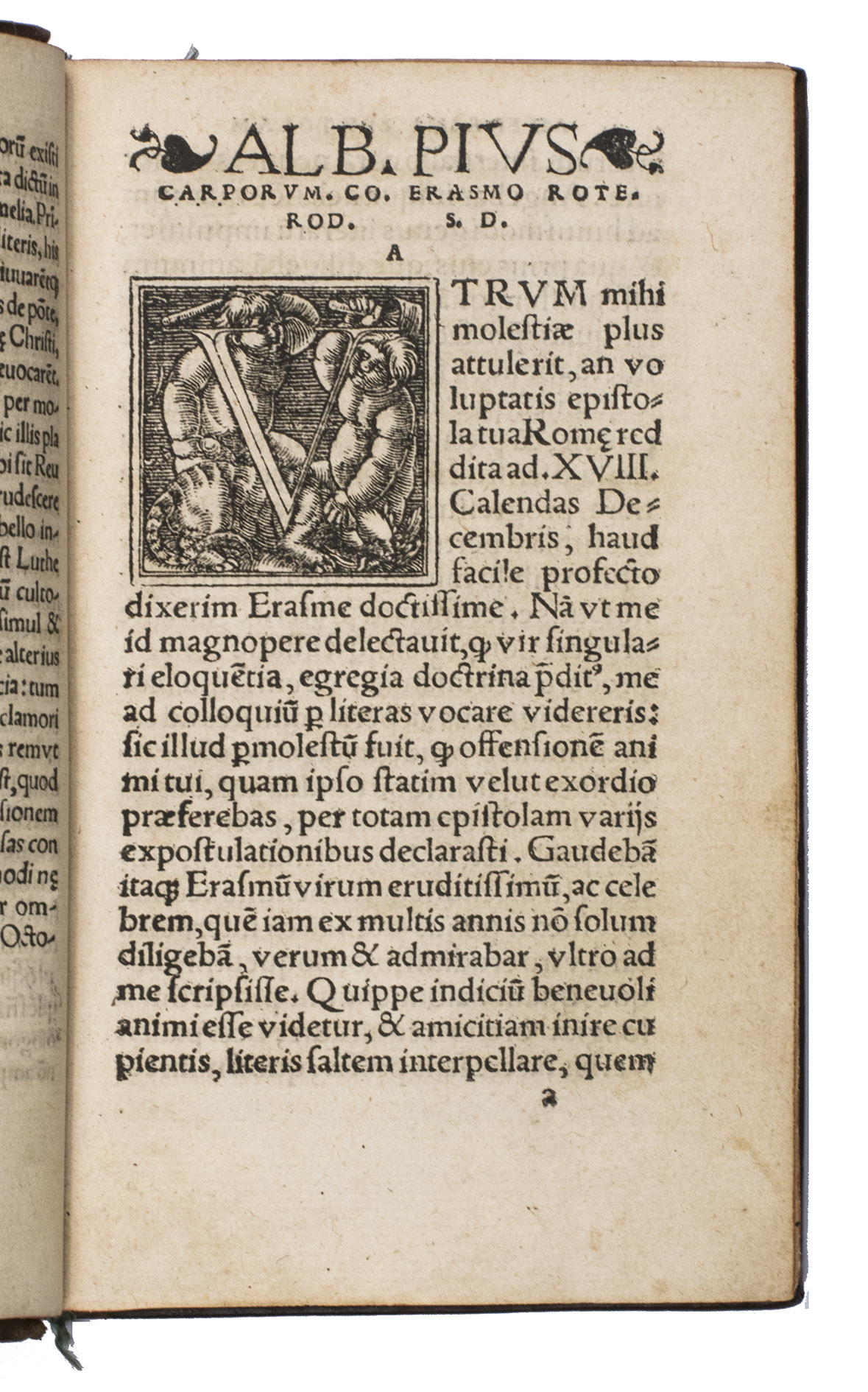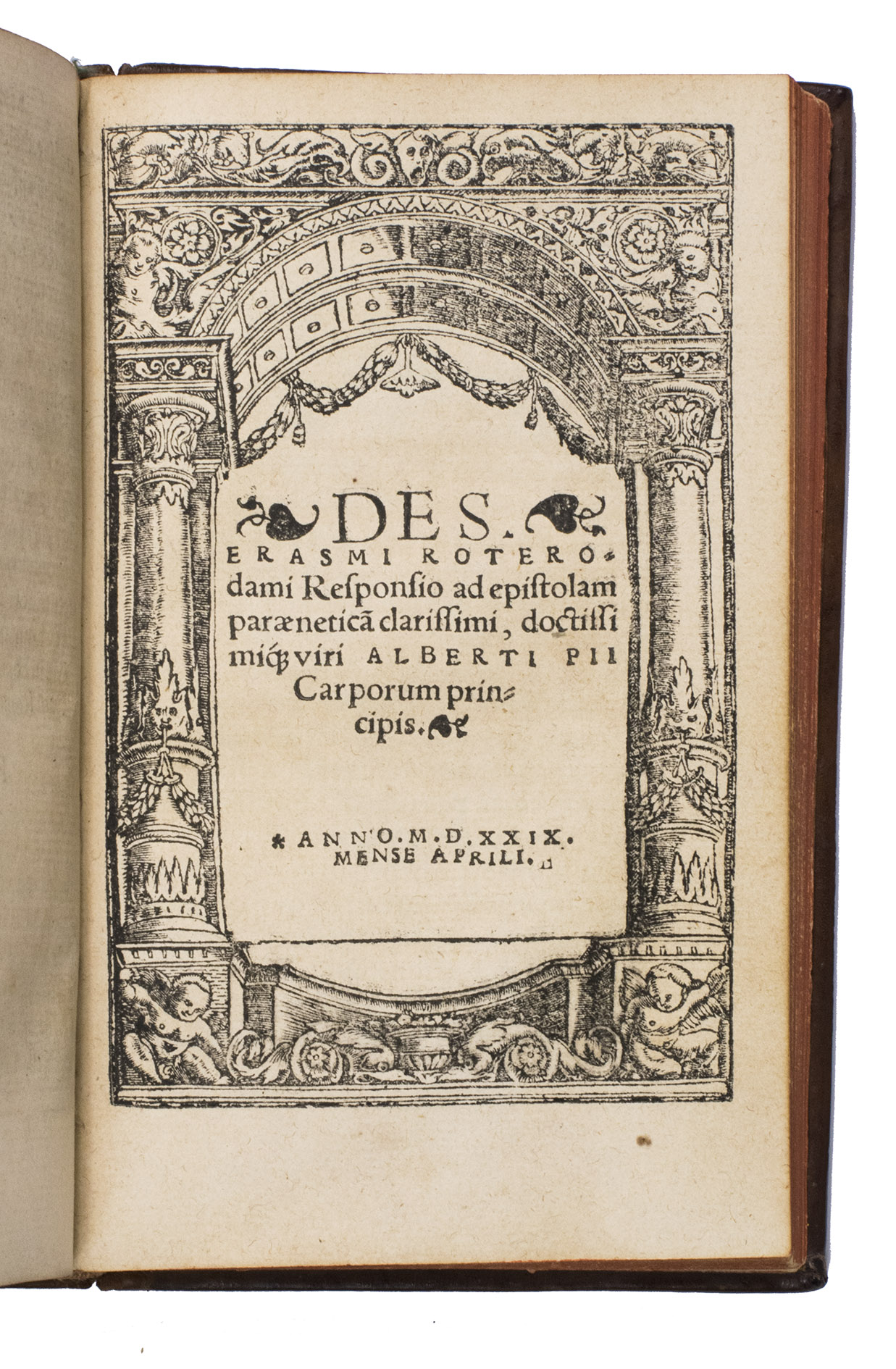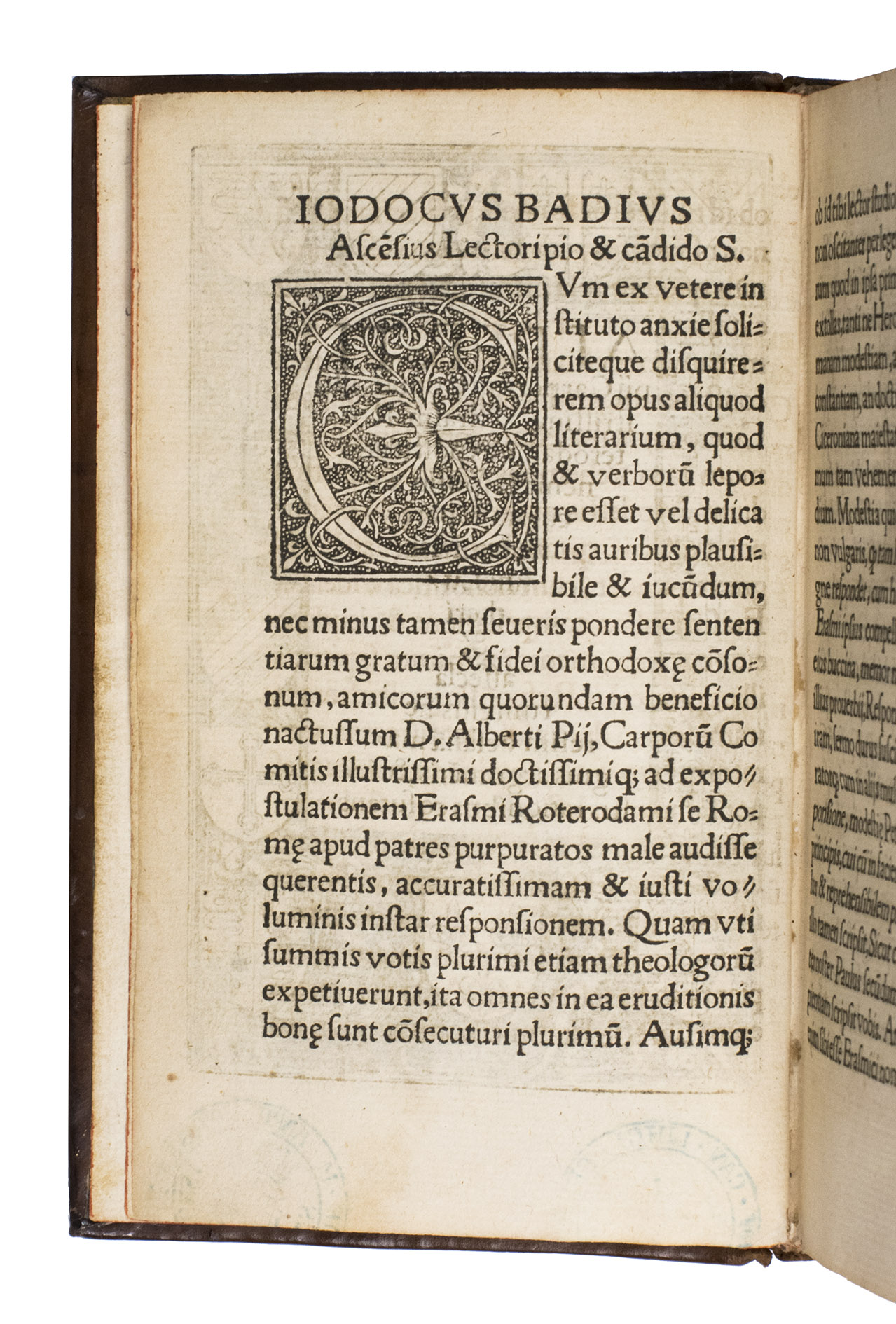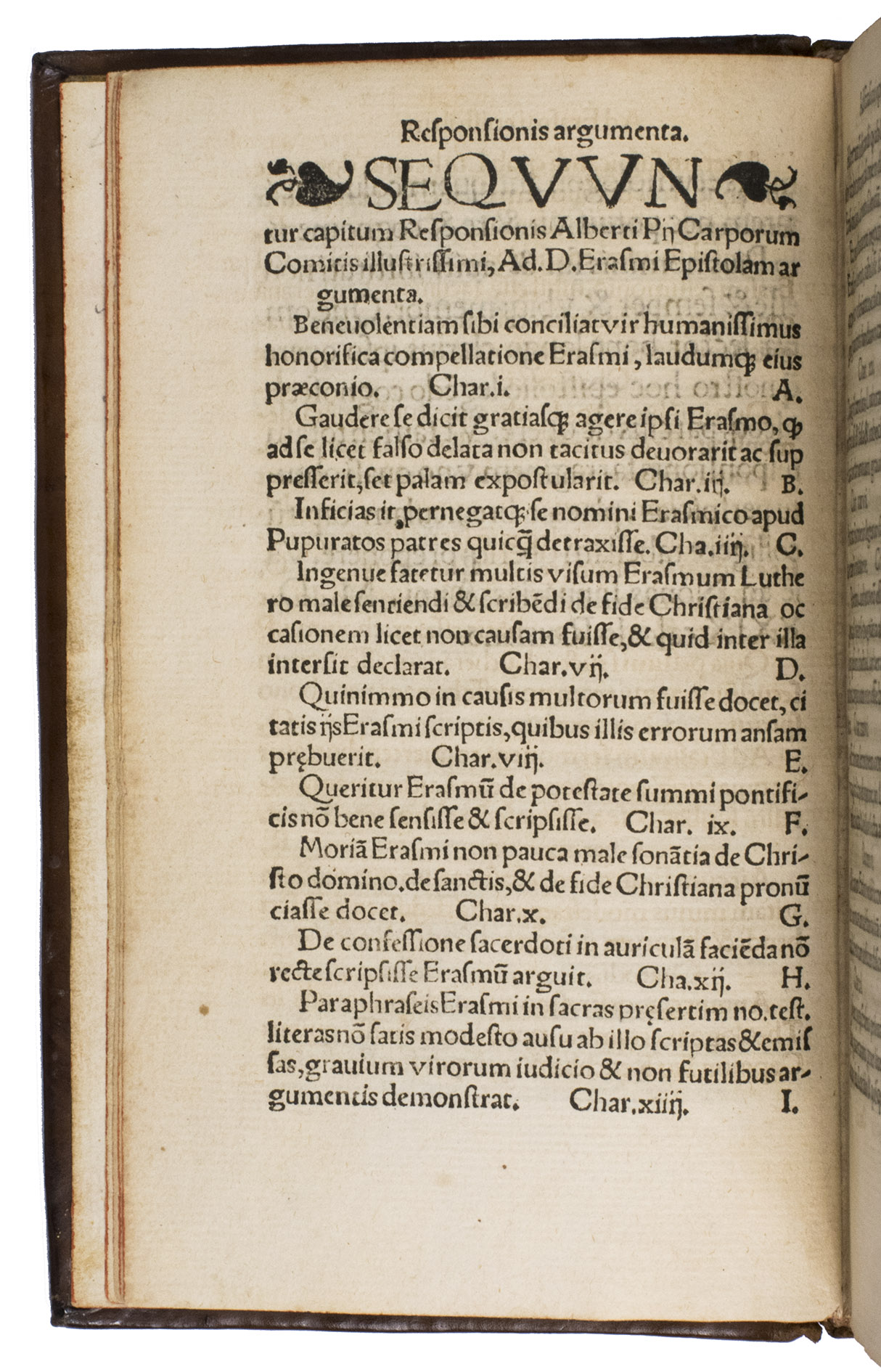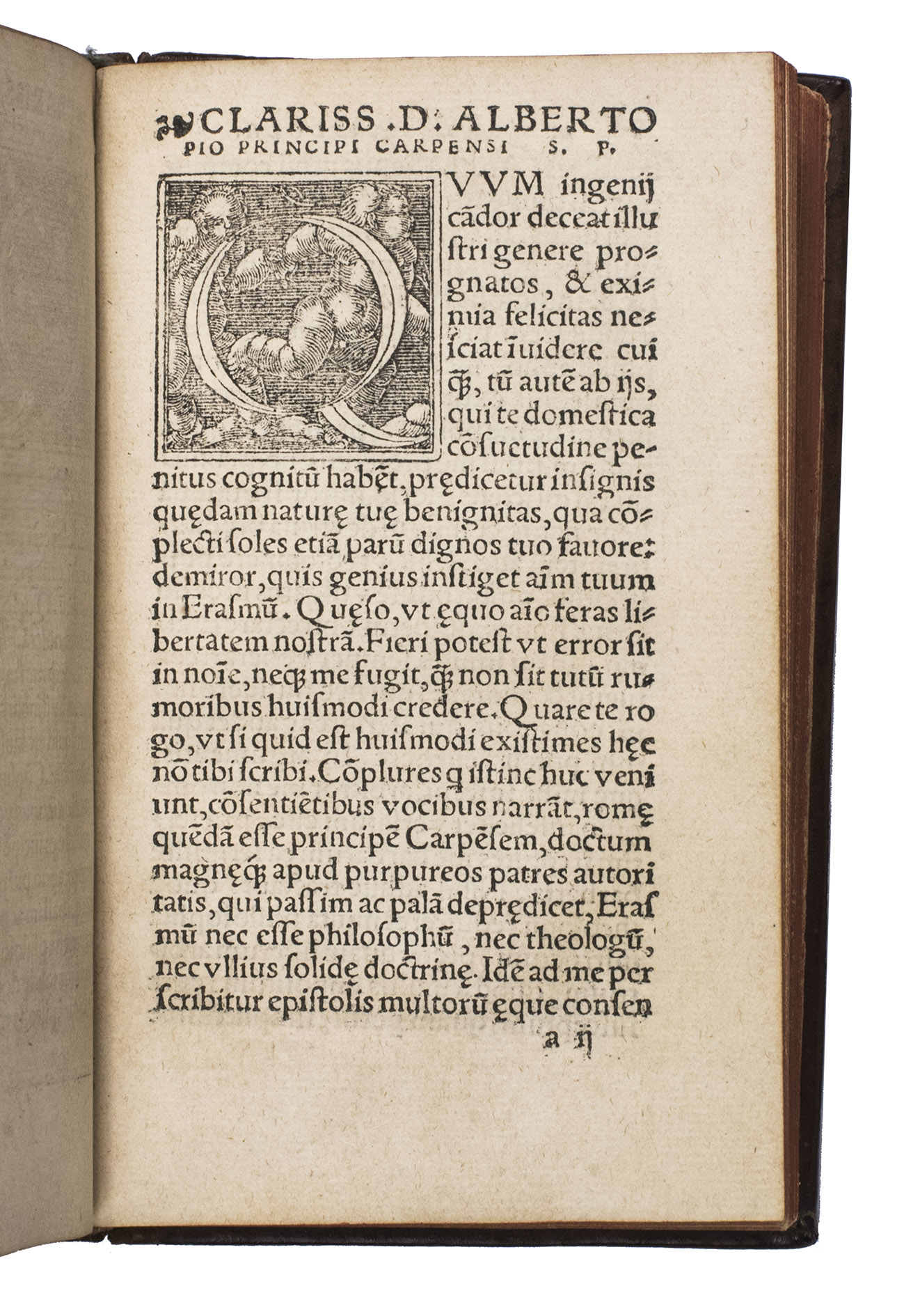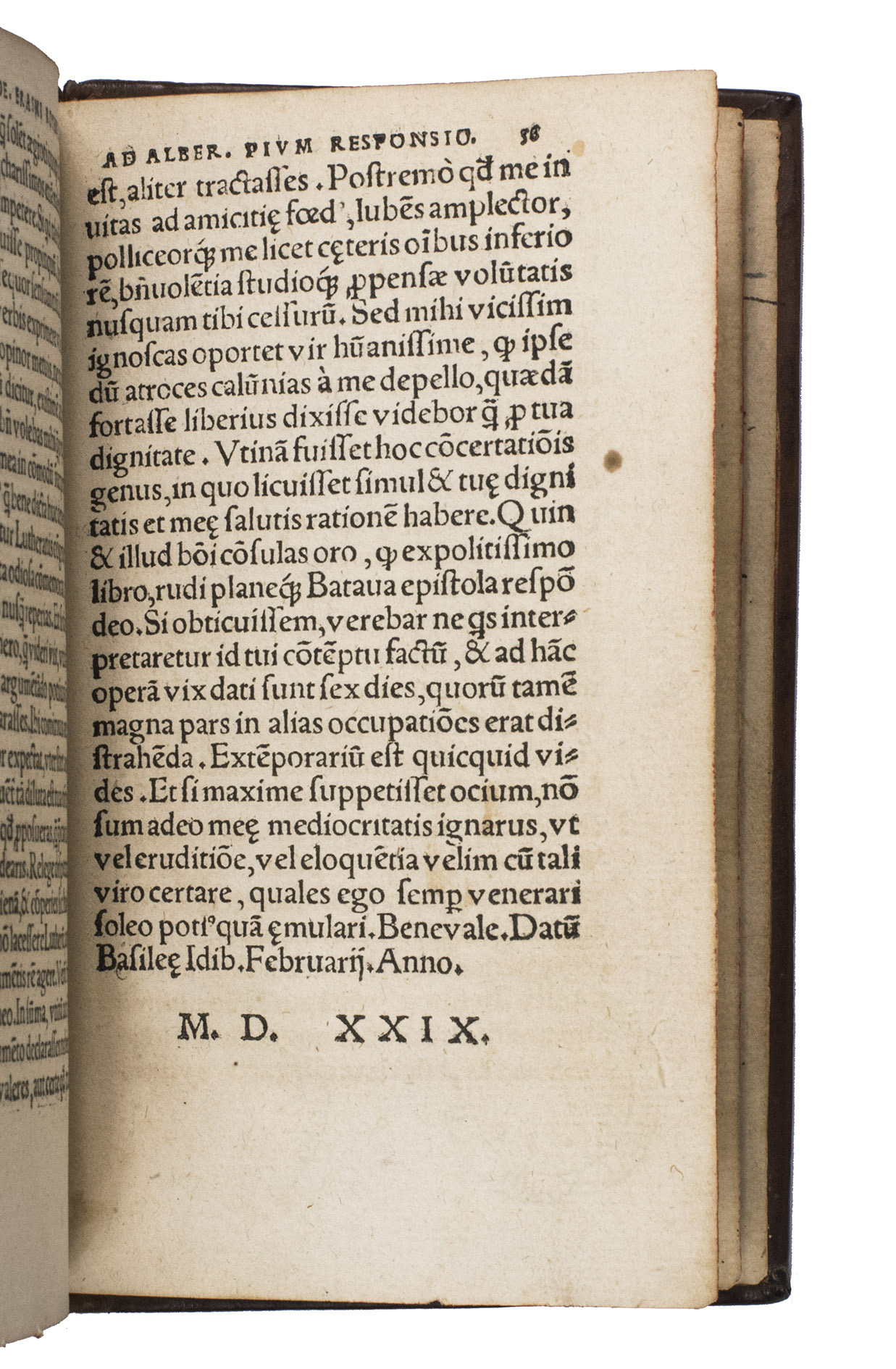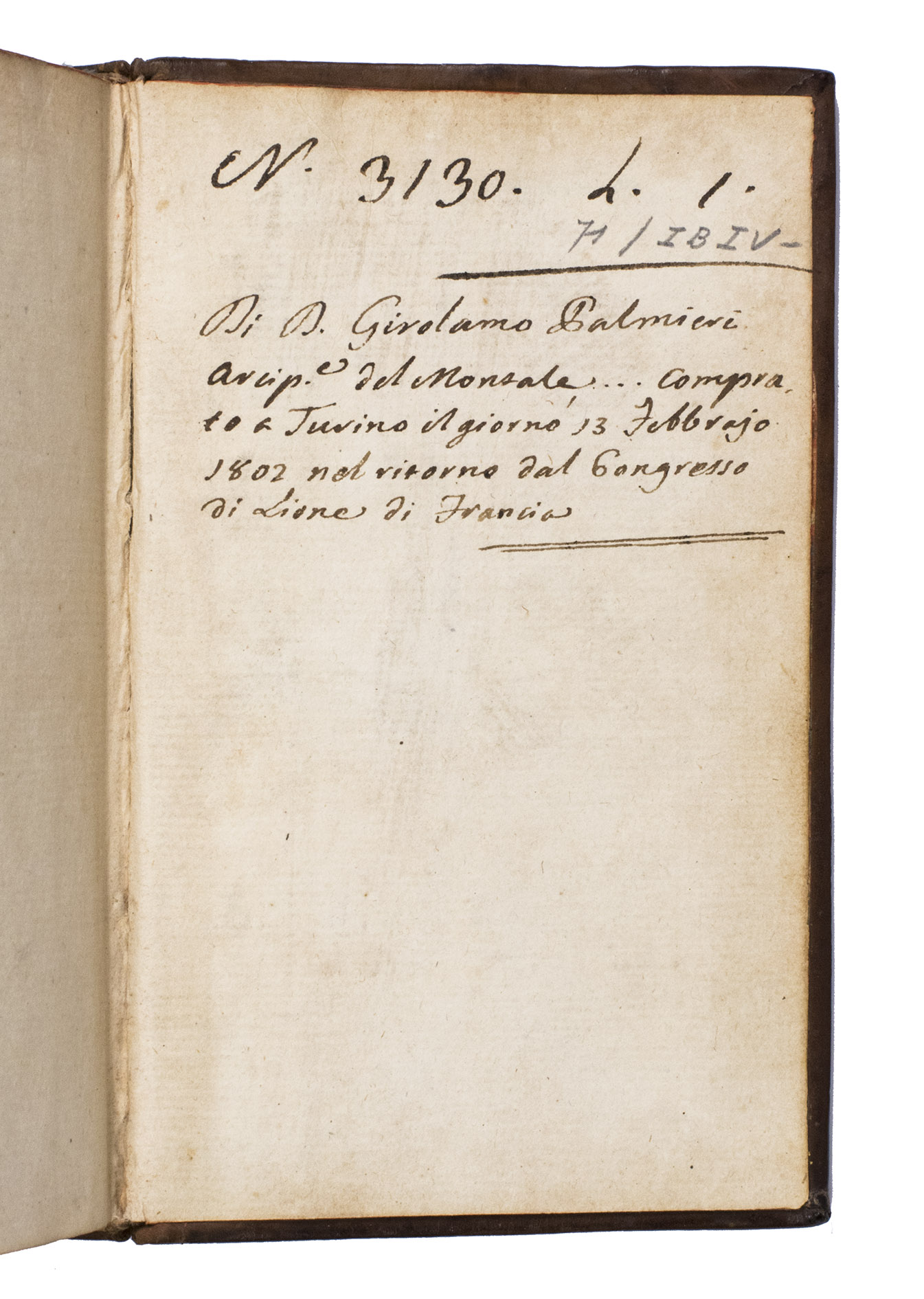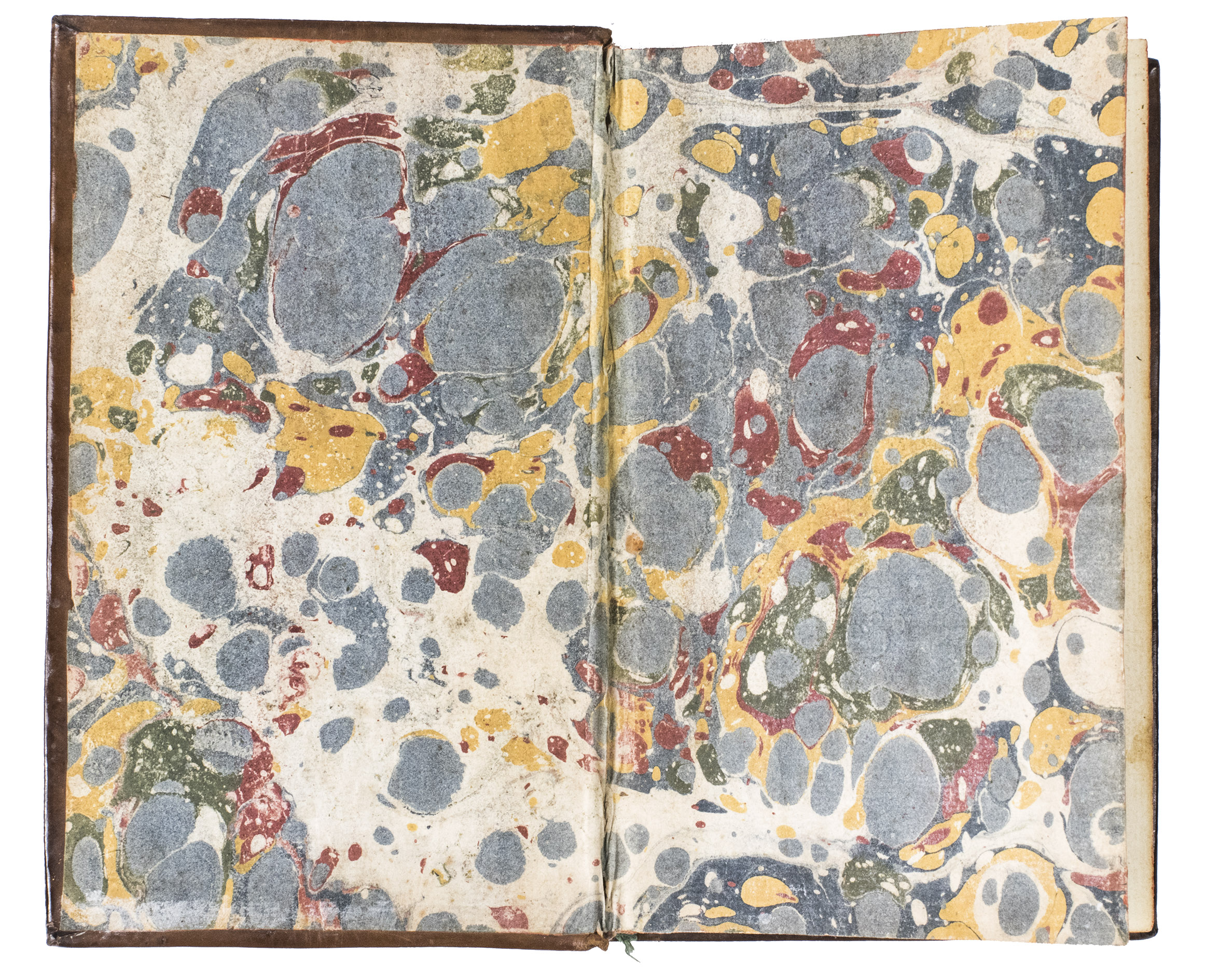PIO, Alberto.
Alberti pii carporum comitis illustrissimi ad Erasmi Roterodami expostulationem resposio accurata & parenetica, Martini Lutheri & asseclarumeius he resim uesana magnis argumetis & iustis rationibus consutans.
[Paris? Pierre Vidoué?, 1526].
With: (2) ERASMUS, Desiderus. Responsio ad epistolam paraneticam Albert Pii Carporum principis.
[Paris, Pierre Vidoué], April 1529. 2 works in 1 volume. 8vo. Ad 1 with a woodcut armorial frame on the title page and 2 woodcut decorated initials. Ad 2 with a woodcut architectural frame on the title page and 2 woodcut decorated initials. Later (18th-century?) gold-tooled calf with a red morocco title lable lettered in gold on the spine, gold-tooled board edges, red edges, marbled endpapers. [152]; [56] ll.
€ 4,500
Ad 1: Unrecorded issue of the 1529 edition of Alberto Pios attack on Erasmus. Alberto III Pio (1475-1531), Prince of Carpi and a staunch defender of Catholic orthodoxy, composed this treatise as a direct attack on Erasmus and his theological ideas. In it, Pio accuses Erasmus of undermining the foundations of the Christian faith, sowing doubt about traditional theology, and indirectly aiding the cause of Luther and his followers. The work not only denounces Erasmuss ideas but also presents a systematic refutation of Lutheran "heresies".
The work opens with a preface by the Parisian printer-humanist Jodocus Badius (1462-1535), who praises Pios work for its learning, orthodoxy, and Ciceronian eloquence. According to Ad Donker, the treatise first circulated in manuscript form from 1526, though the earliest officially published edition appeared in 1529 (Donker and Minnich). The present volume lacks the colophon dated 1529, it only gives a place date (presumably of the completion of the text) on the last page (Rome, May 1526) and it includes Badius 1529 preface.
Ad 2: Erasmus Responsio written, as he claims, within five days and published in 1529 (Donker), directly addresses Pios accusations. He reaffirms his loyalty to the Church, denies any sympathy with Luther, and insists that his call to return ad fontes, to scripture and the Church Fathers, was intended to strengthen rather than undermine Christianity. With his characteristic sharpness and wit, Erasmus accuses Pio of distortion and excessive severity, setting his own ideals of moderation, peace, and moral reform against his opponents rigid dogmatism.
Read together, the two texts reveal not only the polemical intensity of the age but also Erasmus increasingly precarious position, caught between the reformers on one side and the conservative defenders of orthodoxy on the other.
With manuscript owners inscriptions in brown ink on the verso of the first free flyleaf and the recto of the final free flyleaf. With 2 blue round censor stamps on both the title page of ad 1 and the blank verso of the last leaf of ad 2 of the Diocese of Modena, Italy. The text of both works is occasionally lightly underlined and/or struck through. The boards are slightly scratched and rubbed, the front hinge is slightly weakened at the head and foot of the spine, very slightly browned throughout. Otherwise in good condition. Casini, La prima sessione del Collegio elettorale dei dotti in Bologna nel 1802, p. 34; Ad 1: this ed. not in BM STC Italian; De Reuck; EDIT 16; OPAC SBN; USTC; Vander Haeghen; WorldCat; cf. Donker, De Correspondentie van Desiderus Erasmus 15 Brieven 2082 - 2203 (2017), p. 11; Minnich, N. H. Alberto Pio's Defense of Scholastic Theology, A Companion to Biblical Humanism and Scholasticism in the Age of Erasmus, 2008, p. 277; for the dated 1529 issue: USTC 181155 (1 copy); WorldCat 125165062 (3 copies); Ad 2: Bezzel 1780; BM STC French p. 154; USTC 184864; Vander Haeghen I p. 175; not in de Reuck.
Related Subjects:
